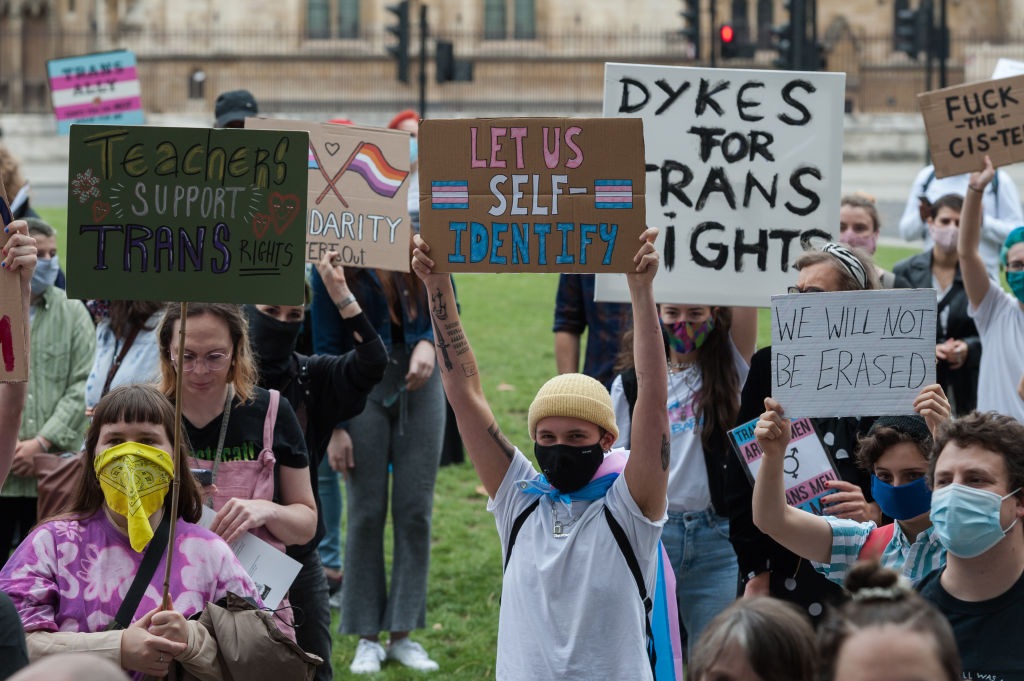GMB Union, one of the UK’s biggest trade unions, has demanded that the UK government finally reform the Gender Recognition Act (GRA) and tackle transphobia.
The union, which counts more than 600,000 members, urged minister for women and equalities Liz Truss to introduce much-needed reforms in a letter earlier this week (August 11).
In the letter, GMB Union referenced the government’s non-committal approach to reform of the Gender Recognition Act (GRA).
“As a trade union we represent all workers, including many trans workers,” the trade union wrote in its letter to Truss.
“We know the levels of discrimination and abuse trans and non-binary people face in the workplace as well as wider society: many employers do not adequately understand trans issues, nor do a large number of service providers that trans people rely on.”
GMB Union comes out swinging for trans rights in powerful letter to equalities minister Liz Truss.
GMB Union drew Truss’s attention to research conducted in 2017, which showed that almost half of trans workers had been bullied or harassed at work, while a third reported having their gender identity revealed without their consent.
The trade union hit out the the overly complicated process by which trans people can get legal gender recognition in the UK, calling the barriers “significant”.
“Under the current process there are significant financial, emotional and medical barriers to legal recognition because those going through the process must provide evidence of a gender dysphoria diagnosis and demonstrate they have been living in their gender for two years.
Going back on the commitment to reform the GRA for the better will have a detrimental impact on the safety and lives of trans and non-binary people.
“Further to that, access to health care is inadequate with waiting lists for initial appointments, between one and two years and with only seven such clinics in the UK,” they added.
GMB Union went on to question why the UK government has not yet released the results of its extensive 2018 public consultation on the Gender Recognition Act.
They also noted the results of a recent YouGov poll, commissioned by PinkNews, which showed that a majority of women support self-declaration for trans people.
“Self-declaration is already the law in many countries such as in Ireland were a person over the age of 18 can change their gender by way of a ‘statutory declaration’,” the group said.
Rolling back trans rights would be ‘discriminatory’, trade union says.
GMB Union said they appreciated Truss’s recent pledge that trans rights will not be rolled back.
“We were concerned about press reports that the government was looking at restricting trans people’s access to single-sex facilities and services,” GMB Union said.
“This would be a seriously regressive and discriminatory step against expert advice. It would force trans women to use male facilities despite strong evidence that this puts them at risk of violence.
“Since the Equality Act, trans people have been able to access facilities that match their gender for over a decade.
“In line with your commitments with LGBT+ equality and medical best practice, we ask the government to reform the Gender Recognition Act based on self-declaration,” the union added.
“We urge you to put forward policies that would tackle discrimination against trans and non-binary people and not expose them to harm in particular by denying them access to safe spaces.
“Going back on the commitment to reform the GRA for the better will have a detrimental impact on the safety and lives of trans and non-binary people.”
